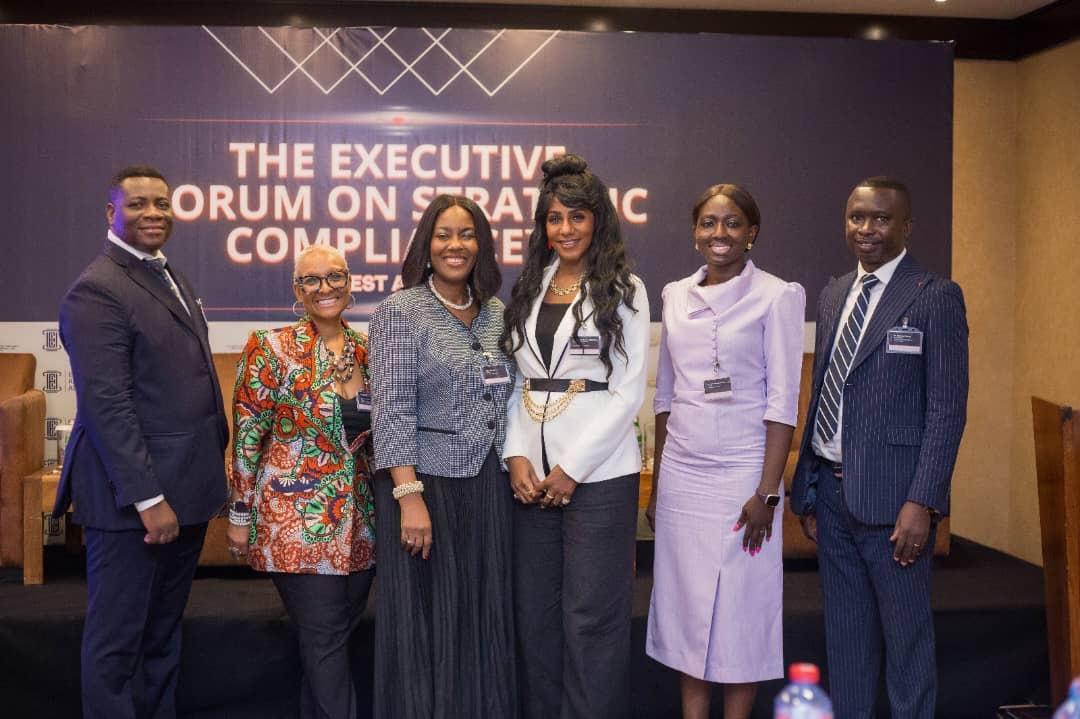Africa-Press – Ghana. Ms Tiffany A. Archer, Esq., Founder and President of Eunomia Risk Advisory Incorporated, says Africa can no longer wait to be included in the global governance conversation.
She said it must now assert its place as a co-architect of governance systems that were ethical, contextually relevant, and future-ready.
Madam Archer made these comments at the inaugural Executive Forum on Strategic Compliance in West Africa, convened in Accra.
The Forum brought together distinguished leaders across sectors from government and diplomacy to academia, legal practice, and corporate governance to engage in candid, high-level dialogue on the future of governance, risk management, and compliance across Africa and beyond.
The event was convened by Eunomia Risk Advisory and its strategic collaborators, and supported by institutions, including the Institute of Directors, Ghana Bar Association, African Corporate Governance Network, Public Procurement Authority, Bank of Ghana, Ghana Institution of Engineers, and State Interests and Governance Authority.
Ms Archer, Esq. said “This is not just a convening, it is a signal that Africa is not waiting to be invited to the table. We are building our own with integrity, intelligence, and intention.”
She noted that some of the most courageous and values-driven leadership she had encountered came from the West African region.
“What is needed now is not imported prescriptions, but platforms for African leadership to be seen, heard, and strengthened,” she added.
Ms. Archer said Eunomia’s mission was to help organisations translate commitment into measurable capacity through data-driven, behavioural insights.
Professor Douglas Boateng, Chairman of PanAvest International and Africa’s first Professor Extraordinaire for Supply and Value Chain Management, called for a wholesale rethink of Africa’s governance structures.
“Western-style governance models can only take us so far. If we do not reimagine governance, we remain trapped in ceremonial leadership and short-term cycles,” he said.
Prof Boateng said, “Ghana led the continent’s political independence and we must now lead its economic emancipation through Afrocentric governance rooted in our realities.”
He announced that his newly published governance book written in collaboration with Eunomia had been approved by the National Council for Curriculum and Assessment (NaCCA) for secondary school use in Ghana, and is under consideration in other African nations.
The goal, he said, was to build generational governance literacy by “catching them young.”
Professor Marcia Narine Weldon, Director of the Transactional Skills Programme at the University of Miami School of Law said, “From my work across Latin America, the U.S., and now here in Africa, what stands out is the unique opportunity African leaders have to craft governance models that are not only ethical but also culturally intelligent and community-driven.”
She said that the prevailing notion used to be that the U.S. was the world’s compliance policeman.
“That is no longer the case. There is space—and necessity—for African leadership to shape global compliance standards,” she said.
Prof. Narine Weldon, who also serves on Cross-Border Governance Initiatives and teaches artificial intelligence in compliance, emphasised the role of law and technology in strengthening institutional resilience.
Dr. William G.M. Brandful, retired diplomat and Ambassador-in-Residence at Wisconsin International University College, highlighted the disconnect between Africa’s development plans and citizen engagement.
“Agenda 2063 is a noble framework, but we have not sufficiently involved ordinary Africans in its implementation,” he said.
He said for governance to have impact, it must be understood, internalised, and owned by the people, not just the elite.
He added that despite statistical benchmarks showing Ghana at 46 percent progress toward Agenda 2063 goals, the real measure should be visible improvements in people’s daily lives.
For More News And Analysis About Ghana Follow Africa-Press







